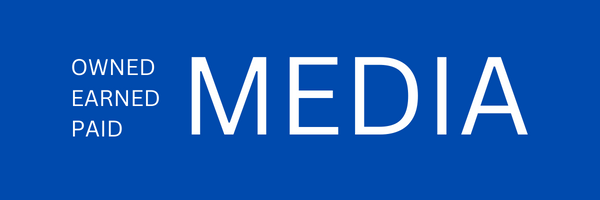 Written by Don Sorensen. Don is an online reputation management authority whose expertise has been featured in the New York Times, USA Today, CNN Money, Forbes and other publications. He has helped numerous direct selling companies improve their online branding efforts. Don is an associate with Strategic Choice Partners.
Written by Don Sorensen. Don is an online reputation management authority whose expertise has been featured in the New York Times, USA Today, CNN Money, Forbes and other publications. He has helped numerous direct selling companies improve their online branding efforts. Don is an associate with Strategic Choice Partners.
Simple SEO Steps to Protect Your Online Reputation in 2023
Over the last few years, there’s been a lot of talk around owned media, earned media and paid media. Paid media is associated with all types of advertising. Earned media is exposure to your company and its products through word-of-mouth methods, like reviews, shares, reposts, recommendations and other references in third-party content. Owned media is the content you directly have control over, like websites, social media profiles, public relations, podcasts and other forms of content produced in-house.

Online reputation management is how your company is presented on the first page of a Google search. Paid media can have some impact since Google Ads can be purchased. Earned media may be shown by review sites, but the most control companies have to influence the Google search results is through owned media. These are the corporate website (and potentially other owned websites) and strong social media profiles on Twitter, Facebook, Instagram, LinkedIn and YouTube.
Here are three areas of owned media that you can work on to improve your company’s online reputation:
Corporate Website
Basic search engine optimization is critical for your corporate website. While Google’s algorithms are always improving, there are a number of things you can do to help Google “see” your site.
• Use your company name as the meta title and description tag
• Use various header tags
• Internally link to other pages on your website within the content
• Provide links to social media profiles
• Do frequent content updates
• Be sure your site works on mobile devices
Google doesn’t like stagnant websites, because they tend to be less relevant to users than sites that are kept up to date with the latest information and news. Key pages on your website should be updated at least on a monthly basis. Content updates can include videos, blog posts, press releases, company news or channel-related events. In fact, you should have a plan to constantly create content so you have something to post on a regular basis.
Social Media
 One of the best ways to protect your online reputation is the proper development and constant updating of social media profiles. Your company should be active on Facebook, Twitter, Instagram, LinkedIn and YouTube. Link all of your social media profiles together. For example, your YouTube “About” page should link back to all of your social media sites and to your main website. Be sure to flesh out your social media profiles and pages with complete descriptions about what your company does, and with relevant keywords to help the search engines find you. The more information you put on social media, the better chance you have of getting them to rank high in the Google results.
One of the best ways to protect your online reputation is the proper development and constant updating of social media profiles. Your company should be active on Facebook, Twitter, Instagram, LinkedIn and YouTube. Link all of your social media profiles together. For example, your YouTube “About” page should link back to all of your social media sites and to your main website. Be sure to flesh out your social media profiles and pages with complete descriptions about what your company does, and with relevant keywords to help the search engines find you. The more information you put on social media, the better chance you have of getting them to rank high in the Google results.
Here are ideas to improve social media frequency:
• A link to a subpage from your corporate website each week
• Pictures of team members in corporate offices
• Pictures of company representatives at meetings and events
• Company representative testimonials
• Executive videos
• Short videos from recent events
• Short testimonial videos from events (very important)
• Interviews about business success
• The latest news about your company
• Statistics about your company (growth, expansion, etc.)
• Corrected misconceptions about the direct selling channel
• Company milestones
• Answers to commonly asked questions about the business
• Answers about the product lines
• Introductions of the executive team
• Introductions of the marketing teams
• Facebook Live events
• Polls for your followers
Public Relations
Good public relations are critical to a positive online reputation. Sometimes companies feel that, because of the internet, they don’t need to be as active developing their brand in traditional media spaces. Nothing could be further from the truth. The reality is that the best traditional media (newspapers, magazines) all have great websites. When your company is featured in an article, there’s a good chance that article will show up high in the Google results. I have a client that secured great articles in Forbes and Entrepreneur. Now each of those articles sits high in the Google results.
Press releases can often rank high in Google for your company name, so it’s worthwhile to report on anything newsworthy from your company. Include information about your company in the press release, mentioning your company and brand names while also linking to your social media sites. You can then publish the release through websites like BusinessWire or PR Newswire. Your releases should contain legitimate news and paint a progressive story of your company’s ongoing success. These releases will comprise much of the “digital footprints” your prospective customers will see over time. Aim for a release every month or two, but only do so if the release contains legitimate news that will continue to be meaningful for the long term, as the Google results may remain for years to come.
All of this may sound like a fair amount of work, but the process is straightforward and much can be accomplished by an in-house team. For specific areas like off-site search engine optimization, you’ll definitely want to work with an outside company that has a depth of experience. By following these guidelines, you’ll be well on your way toward creating and strengthening your company’s owned media, and in turn improving your online reputation.
SHARE THIS ARTICLE:
